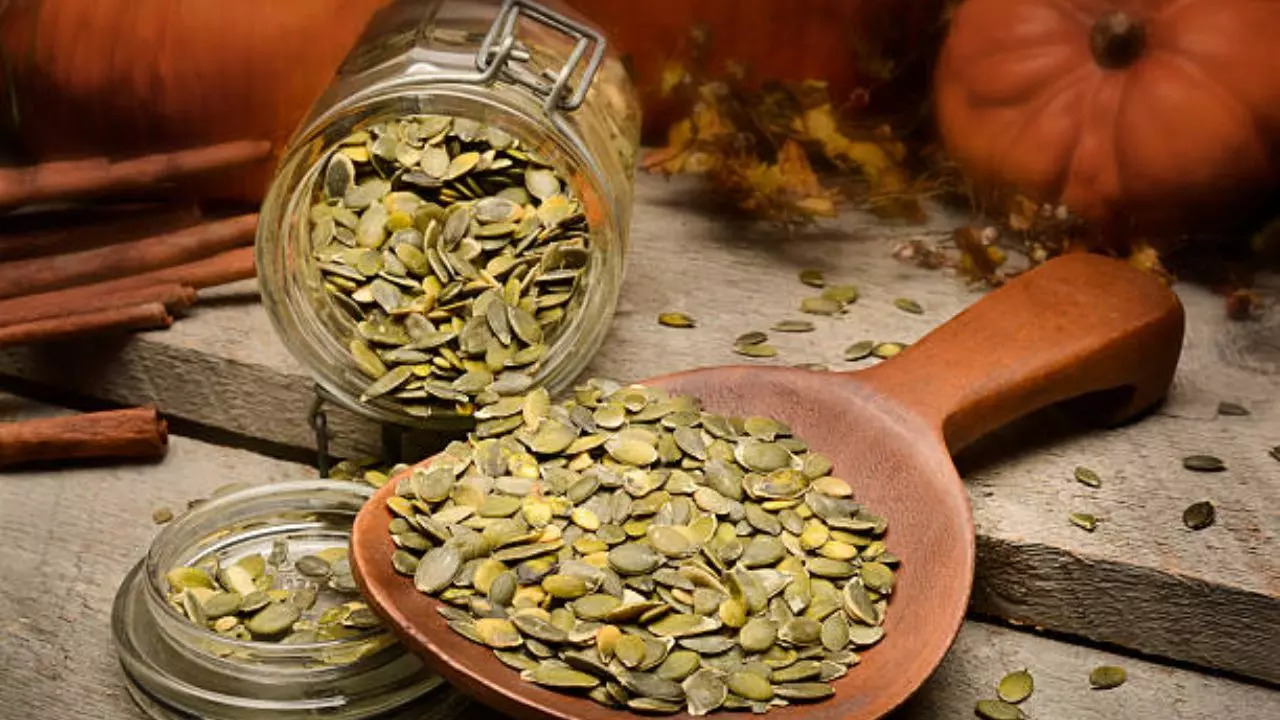5 zinc-rich vegan foods you should include in your diet during the rainy season (Image credit: iStock)
Monsoon season brings with it cooler temperatures and increased humidity, but it also brings with it a host of health problems, such as an increased risk of infections and weakened immune defenses. One way to improve your health during this time is to incorporate zinc-rich foods into your diet. Zinc is an essential mineral that plays a key role in maintaining a strong immune system, which is essential during monsoon season when illnesses such as colds and respiratory infections are more common.
While zinc is commonly found in animal products, vegans can also meet their daily zinc requirements through various plant-based foods. Incorporating zinc-rich foods into a vegan diet is crucial for overall health and well-being. vegan foods Which zinc-rich vegan foods should you include in your diet during monsoon? Here we have listed five zinc-rich vegan foods that you should consume.
Pumpkin seeds
Pumpkin seeds, also known as pepitas, are an excellent source of zinc. A 1-ounce serving of pumpkin seeds provides about 2.2 milligrams of zinc, about 20 percent of the recommended daily intake (RDI) for adults. Not only are these seeds rich in zinc, but they also contain other essential nutrients like magnesium, iron, and antioxidants.
A study published in the “Journal of Food Science and Technology” reveals that the high zinc content of pumpkin seeds plays a role in reducing oxidative stress and inflammation. Pumpkin seeds can be added to salads and smoothies, or consumed as a snack.
Chickpeas
Chickpeas are another excellent vegan source of zinc. One cup of cooked chickpeas contains about 2.5 milligrams of zinc, which is about 23 percent of the recommended daily allowance for adults. In addition to being a rich source of zinc, chickpeas are high in protein, fiber, and essential vitamins and minerals.
Research published in Nutrients shows that legumes such as chickpeas are important components of plant-based diets, as they provide significant amounts of zinc and contribute to total nutrient intake. Chickpeas can be used in a variety of dishes, including hummus, stews, and salads.
Lentils
Lentils are a staple in many vegan diets and are known for their high nutrient density. One cup of cooked lentils provides about 2.5 milligrams of zinc, which is about 23 percent of the recommended daily allowance for adults. Lentils are also a great source of protein, fiber, and several B vitamins.
A study published in “Food Chemistry” shares the health benefits of lentils, including their zinc content and their role in supporting cardiovascular health and reducing the risk of chronic diseases. Lentils can be added to soups, curries, and salads.
Quinoa
Quinoa is a grain that has gained popularity in recent years due to its impressive nutritional profile. One cup of cooked quinoa contains about 2 milligrams of zinc, which is about 18 percent of the recommended daily dose for adults. Quinoa is also a complete protein, providing all nine essential amino acids and is rich in fiber, magnesium, and iron.
A review published in the Journal of the Science of Food and Agriculture reveals that quinoa is a valuable source of essential nutrients, including zinc. Its high nutritional value makes it an excellent addition to various dishes, including salads, grain dishes and side dishes.
Cashews
Cashews are a tasty nut that provide a significant amount of zinc. A 1-ounce serving of cashews contains about 1.6 milligrams of zinc, about 15 percent of the recommended daily allowance for adults. Cashews are also rich in healthy fats, protein, and essential minerals like magnesium and copper.
According to research, nuts like cashews are beneficial for cardiovascular health and can help meet daily zinc needs. Cashews can be eaten as a snack, added to dishes, or used to make cashew butter.
Disclaimer:
The information contained in this post is for general information purposes only. We make no representations or warranties of any kind, express or implied, about the completeness, accuracy, reliability, suitability or availability with respect to the website or the information, products, services, or related graphics contained on the post for any purpose.
We respect the intellectual property rights of content creators. If you are the owner of any material featured on our website and have concerns about its use, please contact us. We are committed to addressing any copyright issues promptly and will remove any material within 2 days of receiving a request from the rightful owner.

